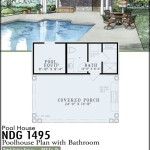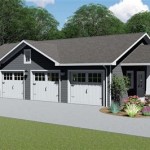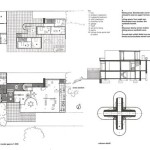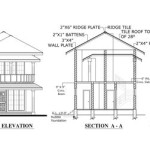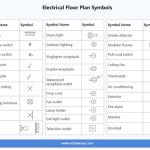Essential Elements of an Effective House Layout Plan
When designing a house, the layout plan is of paramount importance. A well-planned layout will not only enhance the aesthetic appeal of your home but also ensure its functionality and livability. Here are some essential aspects to consider when creating a house layout plan:
1. Traffic Flow and Circulation
Ensure a smooth flow of traffic throughout the house. Avoid cramped spaces and narrow hallways that obstruct movement. Design clear pathways between different rooms, especially high-traffic areas like the kitchen and living room.
2. Room Placement and Adjacency
Consider the relationship between different rooms. Position frequently used rooms, such as the kitchen, living room, and master bedroom, in close proximity for convenience. Group rooms with similar functions together, e.g., bedrooms and bathrooms on the same floor.
3. Natural Light and Ventilation
Maximize natural light by incorporating large windows and skylights. Position windows strategically to provide ample sunlight to all rooms. Ensure cross-ventilation by placing windows on opposite sides of the house to promote airflow.
4. Space Planning
Allocate space efficiently to accommodate the needs of your household. Determine the appropriate sizes for each room based on its intended use. Consider storage solutions and built-in features to optimize space utilization.
5. Accessibility and Safety
Provide easy access to all areas of the house, including the basement, attic, and outdoor spaces. Ensure stairways, ramps, and hallways are well-lit and have proper handrails for safety.
6. Privacy and Noise Control
Consider privacy and noise levels when designing the layout. Position bedrooms and other private areas away from high-traffic areas. Use soundproofing materials or strategic room placement to minimize noise disturbances.
7. Outdoor Spaces and Connectivity
Plan for outdoor spaces that complement the interior of the house. Create seamless transitions from indoor to outdoor areas through patios, decks, or balconies. Consider the orientation of the house to maximize views and natural surroundings.
8. Flexibility and Adaptability
Design a layout that can adapt to changing needs over time. Incorporate flexible spaces that can be repurposed as needed, such as a home office that can double as a guest room. Consider open floor plans that allow for easy reconfiguration.
9. Professional Guidance
If you lack experience in house design, it's highly recommended to seek professional guidance from an architect or home designer. They can provide expert advice and help you create a layout plan that meets your specific requirements.
10. Detailed Plans and Documentation
Create detailed floor plans and elevations that clearly illustrate the layout of the house. Include accurate measurements, specifications, and notes to ensure precise construction.
By carefully considering these essential aspects, you can craft a house layout plan that enhances the functionality, aesthetics, and overall livability of your home. Remember, a well-planned layout is an investment that will provide years of enjoyment and comfort.
House Plans How To Design Your Home Plan

House Plans How To Design Your Home Plan

Small House Design 2024005 Pinoy Eplans Modern Plans Layout

Small House Plans Popular Designs Layouts

Small House Design 2024001 Pinoy Eplans Floor Plans

Small House Design Shd 2024007 Pinoy Eplans One Y Bungalow Plans Layout

3d Floor Plans

12 Examples Of Floor Plans With Dimensions

Floor Plan Creator And Designer Free Easy App

Pin On Ideas

